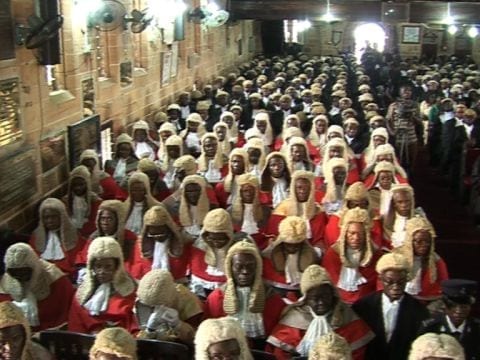While the Teachings of Christianity indicates that all things asked of God must be through His Son, Jesus Christ, the Akan Traditionalists believe, things to be provided by the creator must be requested through the ancestors. That, our ancestors are also responsible for “bad” things which happens to the society. These “bad” things are construed to be good because they are caused by the ancestors.
Such beliefs include, destruction of farmlands, causing floods to destroy properties, thunder strikes on people, strange deaths of kids, couples’ inability to bear offsprings etc.
In fact, traditionally, in this context, it is the belief that, the world of the living is controlled by our ancestors.
All listed “bad” things and many others, are interpreted to be punishment from the ancestors.
It is therefore considered to be a taboo to criticise nananom or even pass judgement on actions believed to have been caused by nananom.
There was once a popular musician in Asante called Aseibu Amanfi. His music was on many occasions about casting coded insinuations and aspersions at people in authority, etc.
One of his hit tracks is;
“m’atɔ me praeɛ ooo, me de pra n’akyi”, which means, I have bought my broom to sweep his remnants…”. This was a song which became very popular after the defeat of the NDC in the year 2000 election which saw John Kufour take office as President of Ghana. Many people at the time knew Aseibu Amanfi was insinuating about the departure of President Jerry John Rawlings from office.
By year 2002, Aseibu Amanfi had come up with another hit;
“m’atɔn me kalah TV akɔtɔ black and white…”, a song depicting the regret of Ghanaians voting out the party of a coloured Jerry Rawlings for a “black and white” John Kufour.
Again, one popular song which will resonate with even teenagers of today is his track tittled “Kanawu”. The chorus of Kanawu goes like;
“wo kasa wo bɛwu, w’ankasa wo bɛ wu, nti ka… kanawu na nsɛmfoo ahi…” to wit, you talk o, you no talk o, you go die… so speakout because baloney be disgusting.
In the song Kanawu, Aseibu Amanfi encourages people to talk truth to power and be consistent in speaking the truth no matter the consequences.
Ironically, in one of his songs, Aseibu Amanfi reminds us about the fear of ancestoral spirits and the consequences of criticising the ancestry, which could land one into deep troubles.
I will attempt to give a line in his song relative to ancestry worshipping. Though the song is in twi, I will do my best to write in a way readers will understand;
“We no go fi talk ooo… cloth dey cover secret things. Our ancestors (nananom) dey stay at asamando (ancestoral realm) dey do wrong things. But who be you to say it. Once you say it, dem go use nsamantoa (contempt) catch you say come asamando explain yourself. Meanwhile asamando be place of no return. So who be you to say nananom no do good”.
Thank you
By Yaw Brogya Genfi (Ayaase, Fomena)
]]>

